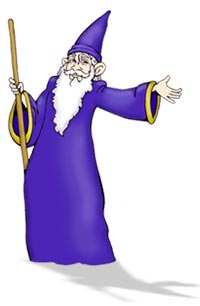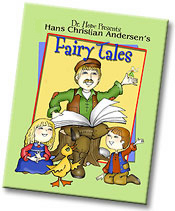

![]()
Hans Christian Andersen's Fairy Tales |
The Buckwheat
|
VERY often, after a violent thunder-storm, a field of buckwheat appears blackened and singed, as if a flame of fire had passed over it. The country people say that this appearance is caused by lightning; but I will tell you what the sparrow says, and the sparrow heard it from an old willow-tree which grew near a field of buckwheat, and is there still. It is a large venerable tree, though a little crippled by age. The trunk has been split, and out of the crevice grass and brambles grow. The tree bends for-ward slightly, and the branches hang quite down to the ground just like green hair. Corn grows in the surrounding fields, not only rye and barley, but oats,—pretty oats that, when ripe, look like a number of little golden canary-birds sitting on a bough. The corn has a smiling look and the heaviest and richest ears bend their heads low as if in pious humility. Once there was also a field of buckwheat, and this field was exactly opposite to old willow-tree. The buckwheat did not bend like the other grain, but erected its head proudly and stiffly on the stem. “I am as valuable as any other corn,” said he, “and I am much handsomer; my flowers are as beautiful as the bloom of the apple blossom, and it is a pleasure to look at us. Do you know of anything prettier than we are, you old willow-tree?” And the willow-tree nodded his head, as if he would say, “Indeed I do.” But the buckwheat spread itself out with pride, and said, “Stupid tree; he is so old that grass grows out of his body.” There arose a very terrible storm. All the field-flowers folded their leaves together, or bowed their little heads, while the storm passed over them, but the buckwheat stood erect in its pride. “Bend your head as we do,” said the flowers.
|
Click here to continue the story
Check out all the toys in the toy store, click here


